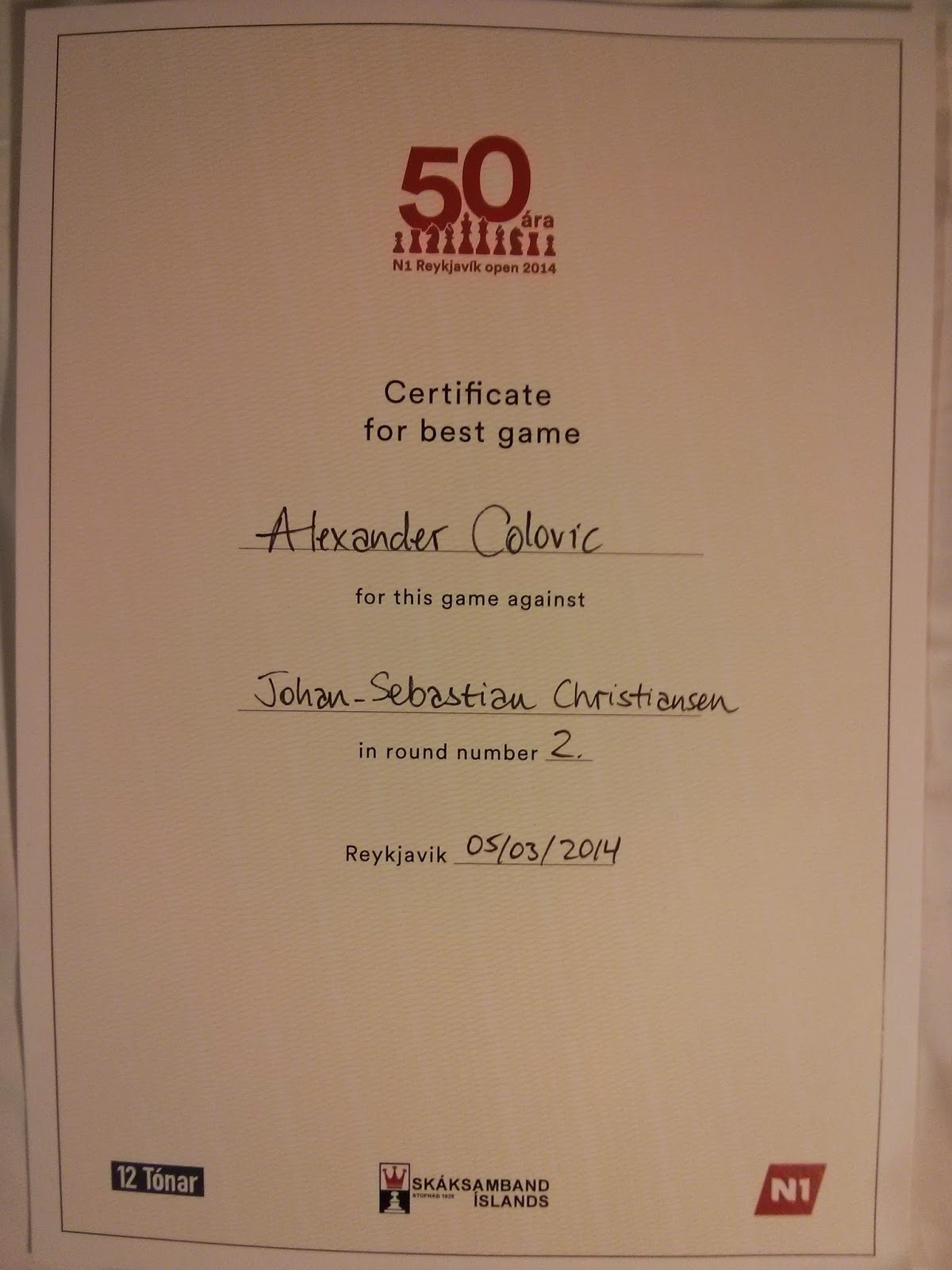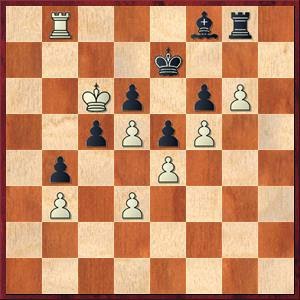Today’s games were again very interesting. The least interesting, however, from a point of view of independent play, was the duel of the former World Champions. In a Vienna, it was all preparation, from beginning to end. The only difference was that Kramnik refreshed his memory before the game so he was more confident, while Anand had to dig into his memory a bit more in order to remember how the line went. But it was an important theoretical game, one of the many the pair has had in the past. Their press conference was much more interesting, especially when they got to the philosophical themes. I particularly liked Kramnik’s comment of not needing to understand chess too much! Understanding it a little bit better than the opponent is all you need, according to the Russian and he knows what he’s talking about. I can actually relate to that, because once you get in too deep (in any area, for that matter, not only chess) you start to become too philosophical, you start to think about the meaning of it all and that takes away the competitiveness, the sharpness and the aggression, all of which are needed for a successful outcome of the game.
Karjakin probably surprised Topalov with 1 c4, but that was all he achieved. Topalov has a lot of experience in the Reversed Dragon in the English so he didn’t have too many problems throughout the game. A solid draw, but that means different things for the players. Karjakin so far continues in line with my prediction that he will be solid and not push too hard, while Topalov might get nervous if he doesn’t win a game soon. He still hasn’t had a chance to win a game and usually a long drawing series ends with a loss. Tomorrow he’s black against the disappointed Svidler, so anything is possible…
Aronian beat Svidler and they changed places in the standings. Svidler was principled and went for the Grunfeld (compare this decision with the one from London when he surprised Aronian with a rare line in the QGA and drew without problems), but I warned about this in my Preview – the Grunfeld is a risky opening, no matter how well prepared you are. Here again we saw a very deep preparation from both players (just remember that “These People Cannot Be Trusted” when Aronian says he didn’t know the line) – it was preparation at least until move 27 (and almost certainly much deeper), the first critical moment when Svidler had a big thing whether to draw (by taking on d4 – I’m sure he knew this was a draw even before the game) or continue the game, which he did. This decision speaks volumes of Svidler’s psychological disposition: he showed great courage and self-confidence by continuing the game in a position which is easier to play for white against one of the favourites of the tournament, against whom a draw with black is a great result. Eventually he regretted this decision and Aronian won a good game, but this courage shows that Svidler has matured. But on the other hand, he repeated the same scenario from London when he was completely winning against Gelfand in round 5 (a win would have brought him to +2, just like the win against Kramnik would have two days ago) and after the disappointment with the draw in that game he lost to Carlsen the next day – this time he lost to Aronian (is Svidler losing to the eventual winners?). Svidler showed character, but Fate has her own ways and maybe this showing of characted was in fact a good omen for Aronian, who won a point from a brave Svidler while he may have only achieved a draw had Svidler been the old one. Such twists of Fate usually favour the chosen ones. Whether Aronian is the chosen one in this tournament we will see, but this game, for me at least, makes Aronian the main favourite to win the tournament (even though he’s still half a point behind Anand at this point). Until the next twist of Fate, of course.
Mamedyarov and Andreikin also switched places in the standings after the former’s victory. It was a topsy-turvy game, showing that both players aren’t in very good form. I found it interesting watching Mamedyarov in the press conference when he showed a line where he thought he couldn’t take the pawn on f6 with his queen from f3 because he thought he was losing the queen after Bg7, only to realise that he could go back to f3! The horror on his face made it obvious that in that moment he realised that this was not the usual way he calculates variations and that if it continues like this it will soon get much worse. Andreikin was more collected, but he too was disappointed as he was also trying to win. Neither of the players was happy with the quality of their moves, the only difference being that Mamedyarov got the point. I am curious to see how they try to get over these lapses in their thinking (a situation way too familiar from personal experience! I’ve always found it almost impossible to improve the quality of my brain work during a tournament).
Tomorrow’s big game is Kramnik-Aronian. Let’s see what they come up with this time!
























